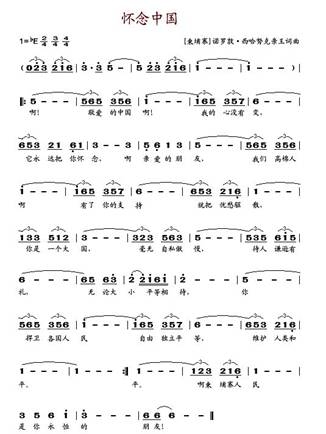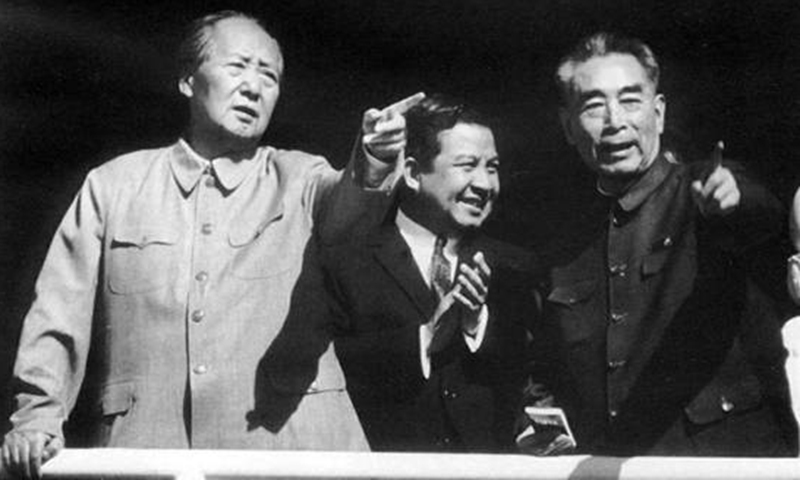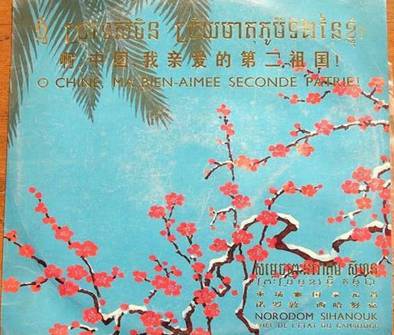




- BRNN
- BRI News
- BRNN News
- Database
Official Documents Polices and Regulations
Inter-government Documents International Cooperation BRI Countries
Business Guide Economic Data BRI Data
Trade
Investment Projects Latest projects
Cases - Content Pool
Norodom Sihanouk, former King of the Kingdom of Cambodia, was an old friend of the Chinese people. For many years, he was committed to advancing the friendship between the two countries. He paid several official and goodwill visits to China and spent his last years in Beijing. Sihanouk wrote songs extolling China-Cambodia friendship, such as "Nostalgia of China," "Long Live People's China! Long Live Chairman Mao Zedong!" and "Oh China, My Dear Second Homeland!", and left many touching stories about the profound friendship between the two countries.
In September 1965, as the Head of State of Cambodia, Prince Norodom Sihanouk and his wife attended China's National Day celebration and paid a state visit to China. They had a tour of China in the company of Premier Zhou Enlai and Vice Premier Chen Yi. Impressed by the picturesque landscapes and warm hospitality, the Prince wrote the song "Nostalgia of China": "You're a large nation, neither selfish nor arrogant; you treat countries of all sizes affably and equally; you defend the freedom, independence and equality of people of all countries and safeguard the peace of mankind." In a written interview with Xinhua News Agency, he said this song would best capture his genuine feelings and those of the Cambodian people.

“Nostalgia of China,” numbered musical notation, by Norodom Sihanouk
On 18 March 1970, during Sihanouk's visit to France and the Soviet Union, Cambodian Prime Minister Lon Nol staged a coup d'état with the US behind the scene. Upon hearing the news, Sihanouk was overwhelmed by anguish and burst into tears on the plane to China.
It was a sleepless night in Zhongnanhai, Beijing. Right after he received a report on the coup, Premier Zhou went immediately to Chairman Mao. The two had a discussion overnight. On the morning of 19 March, Chinese leaders such as Zhou Enlai, Ye Jianying, and Li Xiannian went to the airport to receive Prince Sihanouk. The Prince had had an anxious flight, not sure how the Chinese government would treat him. But his worries were swept away the moment he got off the plane when Premier Zhou stepped forward and gave him a warm handshake and a hug. Premier Zhou reassured him, saying that his visit was most welcome, and that he was still the Head of State of Cambodia and China would forever recognize him and no one else. In his memoirs, Sihanouk wrote that the presence of Premier Zhou and all the senior leadership of the Chinese government at the airport had dispersed the dark cloud looming over his fate.

Mao Zedong (left), Zhou Enlai (right) and Prince Sihanouk (middle) at Tian’anmen Rostrum, May 1970
In his talks with Premier Zhou, Sihanouk made clear his reluctance to live in exile and determination to fight the US and save his country from Lon Nol, whom he called a traitor for seeking support from the US and betraying Cambodia. China gave Sihanouk tremendous support and help as he established the National United Front of Kampuchea and the Royal Government of the National Union of Kampuchea in Beijing. China also facilitated the convening of a four-party summit in Guangzhou for the top leaders of the three countries in Indochina, namely, Vietnam, Laos and Cambodia.
Out of gratitude for China's support during the tough times, Sihanouk wrote another song named "Long Live People's China! Long Live Chairman Mao Zedong!."
Upon Sihanouk's arrival in Beijing, the Western media spread the words that China put the Prince under house arrest as a captive. Sihanouk's French friends flew to Beijing to see what had happened. The Prince showed them videos of his trips around China and how he was warmly welcomed and received by local senior officials and the public. His friends were moved by China's hospitality and complained about Western media.
On 17 April 1975, Lon Nol's regime was defeated and Phnom Penh, the capital of Cambodia, was liberated. In August, Sihanouk planned to return to his home country. He asked protocol officers of the Foreign Ministry to inform Chairman Mao and Premier Zhou and expressed his wish to bid farewell to the two leaders in person. Chairman Mao and Premier Zhou, despite their age and poor health, agreed to the request. Sihanouk thanked China for giving them substantial, generous, brotherly, and unconditional support of various forms that helped them win a historic victory. He said he was convinced that China would remain Cambodia's NO.1 supporter in the future. To convey his gratitude, he wrote a third song "Oh China, My Dear Second Homeland!."

“Oh China, My Dear Second Homeland!” by Norodom Sihanouk
Norodom Sihanouk was highly respected by the international community for his unremitting efforts for his nation and people and for world peace. He made tremendous contributions to China-Cambodia friendship. In the song "Oh China, My Dear Second Homeland!" he wrote: Oh! Great and glorious China! I pay to you the homage of my heartfelt devotion; I look upon you as my second motherland!"

Tel:86-10-65368972, 86-10-65369967